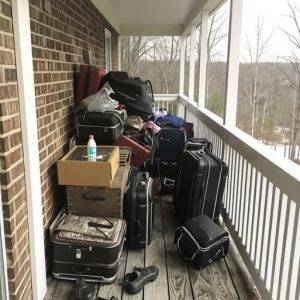I have two daughters: Emily, ten, from my first marriage—gentle, thoughtful—and Zoe, four, my whirlwind with my husband Matt. He loves them both, but his mother, Sharon, never hid her favoritism. Zoe was the “real” granddaughter. Emily? Ignored, overlooked, slowly made to feel lesser.
When my own mother died, grief overwhelmed me. We had to travel for the funeral. Against my instincts, I let Sharon watch the girls.
We returned three days later. Zoe was at the park with Sharon. But Emily? Silent house. Then—the faint glow from the basement.
I found her there. Curled under the stairs. Tear-streaked, clutching a blanket. “Grandma said this is my room,” she whispered. Sharon had banished her—no dinner, no warmth, just isolation.
I didn’t scream. Not then. I held Emily, promised it would never happen again.
Weeks later, at Sharon’s prized family reunion, her guests smiled, sipping from fine china. Then the slideshow played—photos of Emily, baking with Zoe… then Emily on the basement floor.
Gasps. Silence. Sharon stammered, but her mask cracked.
She hasn’t spoken to me since. Good.
Emily knows now: she’ll never be second-best again.
My silence wasn’t weakness. It was strategy. And when it comes to my children, I am the storm.





